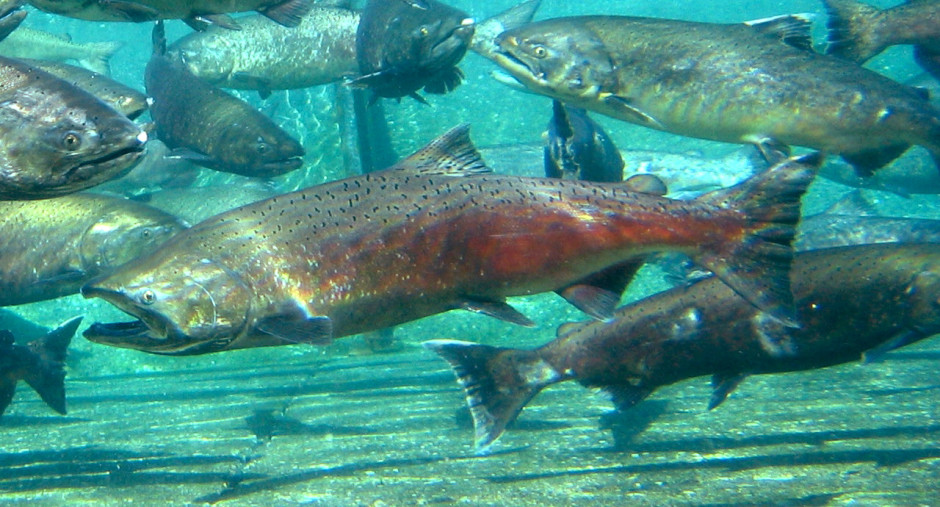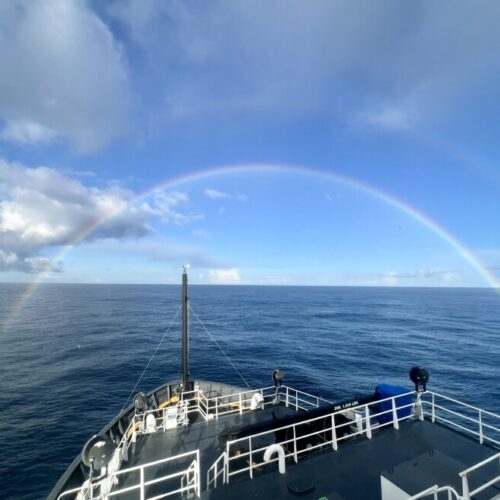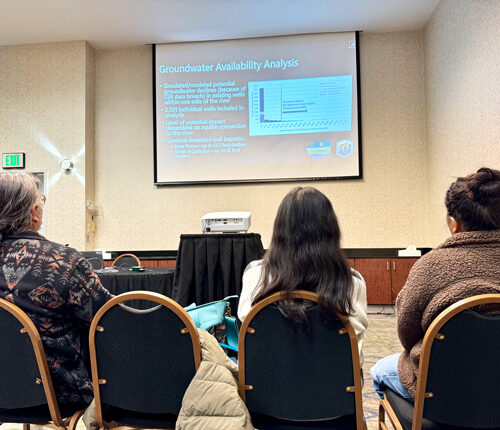
Salmon Conference Calls For Innovative Solutions To Protect Fish
read on
What to do with the four Lower Snake River dams and how to best protect imperiled salmon have been a tough questions for decades. They were the focus at a conference on salmon Tuesday at Boise State University’s Andrus Center for Public Policy.
Bonneville Power Administration’s top official said removing the dams would be a difficult task.
Elliot Mainzer, the head of BPA, said he’s doing “significant due diligence” to understand the best path forward to protect salmon, while still keeping energy costs low. He said the administration must adapt and change.
“We’ve got to try to lean in a bit more for the fish,” Mainzer said.
BPA is one of the agencies in the midst of developing a plan for the Columbia and Snake rivers. One piece of that plan could be to remove or alter the four Lower Snake River dams.
Mainzer said the four dams are integral parts of the power system’s flexibility and capacity. Without the dams, Mainzer said, “You would have a smaller system, and — absent other changes — you would be looking at having to put flexibility, capacity and energy focus on other parts of the grid.”
“We’re just above Ice Harbor Dam. That’s a pretty big body of water — it’s at least over a quarter of a mile wide and 90 feet deep. My sense is that water would be too far away for us to get to,” Gordon said.
A solution will come down to working together, said Merrill Beyeler, an Idaho rancher and former legislator. Beyeler has also worked on salmon restoration in the Lemhi River Valley.
“What I think has to happen is we have to find some way to advocate for each other. That means we do not leave anybody behind. We do not leave folks that depend on the Columbia River system to move the grain to the coast. We just don’t leave anybody behind,” Beyeler said.
Tribal representatives said it’s important to have legislative support in Washington, D.C., before giving serious consideration to removing or altering the dams.
Jaime Pinkham, the director of the Columbia River Inter-Tribal Fish Commission, breaching the dams will be a “tough political lift to get through the halls of Congress.”
He said a lack of congressional support for removing Snake River dams could lead to trouble for salmon.
“It would not surprise me to see legislation introduced to either change the Endangered Species Act or do something as drastic, like we did with wolves, when we legislated their recovery,” Pinkham said.
Right now, Pinkham said, flexible spill and salmon predator policies should be the main focus of restoration efforts.
Other tribe members and fish advocates at the conference called for dam removal sooner, rather than later, both to save salmon and the Puget Sound orcas that depend on them for food.
Chris Wood, the president of Trout Unlimited, said to solve the problem, people have to start thinking on a bigger scale than they do now.
“We’re not succeeding. We’ve spent $16 billion in one of the least successful recovery programs in the history of the world. That’s where we are right now with the status quo,” Wood said.
He said carrying the conversations on from this conference could lead to a “far better place in five or 10 years than we are in today.”
Looking decades into the future, U.S. Rep. Mike Simpson, R-Idaho, challenged the room to look for innovative solutions, like small modular reactors. He said people need to stop protecting their own interests and find ways to make keep energy rates low and protect salmon.
“Make no doubt about it, I want salmon back in Idaho. Can this be done? I honestly don’t know. I don’t know if the willpower is there to do it. I don’t know if the willpower is in Congress to do it, but I will tell you that I’m hardheaded enough to try,” Simpson said.
Copyright 2019 Northwest Public Broadcasting
Related Stories:

Ocean conditions mixed for salmon, leading to average salmon returns
NOAA biologist Brian Burke says mixed ocean conditions may lead to average salmon runs, but climate change is disrupting ecosystems—making continued research critical.

Canadian leaders hope trade negotiations won’t derail Columbia River Treaty
A view of the Columbia River in British Columbia. The Columbia River Treaty is on “pause” while the Trump administration considers its policy options. However, recent comments by President Donald

Snake River water, recreation studies look at the river’s future
People listen to an introductory presentation on the water supply study findings at an open house-style meeting in Pasco. After they listened to the presentation, they could look at posters















